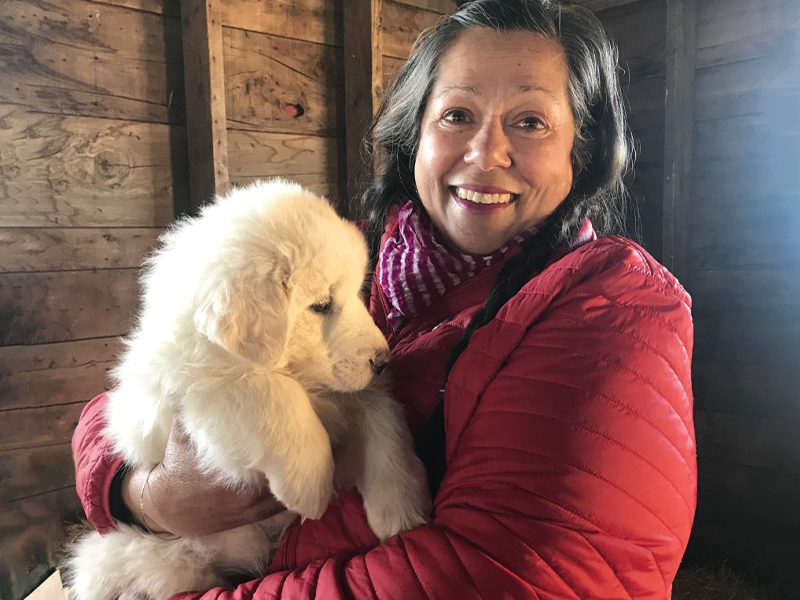

Fluor Canada Ltd.’s manager of Indigenous relations and DEI discusses the post-coronavirus pandemic workplace, employee resource groups and fishing.
Q: What top challenges do you face in your role?
A: Employee engagement can be challenging in the post-[coronavirus] pandemic hybrid working model. We’ve come out of a strictly work-from-home circumstance to a hybrid model and, while we’re virtually fatigued and most of us are keen to be engaging with each other in the workplace, we’re split between face-to-face meetings, attending lunch and learns and taking care of business at work and at home. There’s a lot we want to do, but it’s important to ensure employees aren’t being overwhelmed.
Read: Fluor Canada cares for employee well-being during coronavirus
Q: What new programs or initiatives are you looking to implement?
A: In 2021, I started the conversation on diversity, equity and inclusion with quarterly themes, such as allyship, authenticity and bravery and belonging. We’re closing out this year with the theme ‘innovation through inclusion.’ I’m looking to deepen the conversation around creating psychologically safe workplaces and work environments that support overall wellness — especially mental wellness. We’re also in the steps of creating new employee resource groups to support and engage employees in new and meaningful ways.
Q: How do you judge the success of a program or initiative?
A: Employee participation is a big factor, as is the feedback loop (two-way communication) and asking questions. Does this [program] resonate in the workplace? Are people attending these programs and providing feedback? What can we do better? Have we listened and acted on what our employees have told us about our working environment, our workplace and what they’d like to know about DEI? And have we given them the space, tools and bandwidth to be able to have meaningful conversations? It’s not just about the number of attendees at an event or initiative, it’s whether the conversation continues after the fact.
Q: What programs do you consider the most successful or that you’re most proud of?
A: I’m very proud of our ability to engage our benefits partners to provide culturally relevant and appropriate support to Indigenous and non-Indigenous employees. We can reach out to an elder, an Indigenous counsellor or a specific person within a particular community for support, which is great for employees working on project sites and away from their home community.
Career crib sheet
February 2021 — Present
Manager, Indigenous relations and DEI, Fluor Canada Ltd.
August 2020 — February 2021
Coordinator, Local Immigration Partnership and Foothills + Rocky View, Calgary Catholic Immigration Society
August 2000 — February 2021
Anti-racism and DEI consultant, Lisa Hari Consulting
November 2018 — November 2019
Privacy advisor, Alberta Health Services
November 2017 — November 2018
Communications assistant for Joe Ceci, MLA Calgary-Fort, Minister of Finance, Legislative Assembly of Alberta
Read: Webinar coverage: How are employers incorporating DEI into their benefits plans, HR policies?
Q: What key human resources issues do you expect in the coming year?
A: I think voluntary self-identification will be more relevant as we try to increase the full scale of the accessibility needs of employees, whether it’s related to benefits, supplier diversity or engaging folks on topics that are related to a particular cohort or group.
Q: What do you like to do in your free time? What are your hobbies?
A: I regularly go for walks and I recently volunteered for the [Centre for Suicide Prevention’s] Run for Life. I enjoy live entertainment and I’ve also started fishing. While I’m not that interested in catching the fish, I love throwing out the line and reeling it in. I also have a working farm, so that takes up a lot of my time on the weekends.
Q: What’s your favourite employee benefit and why?
A: I love my benefits — I’ve used the counsellors, nutritionists, drug prescriptions, dental benefits and massage. I’m also learning a lot about the services available through the learning sessions provided by our benefits providers, particularly the financial literacy sessions, which are of particular importance to me at this stage in my career.
Lauren Bailey is an associate editor at Benefits Canada.
